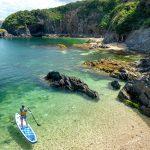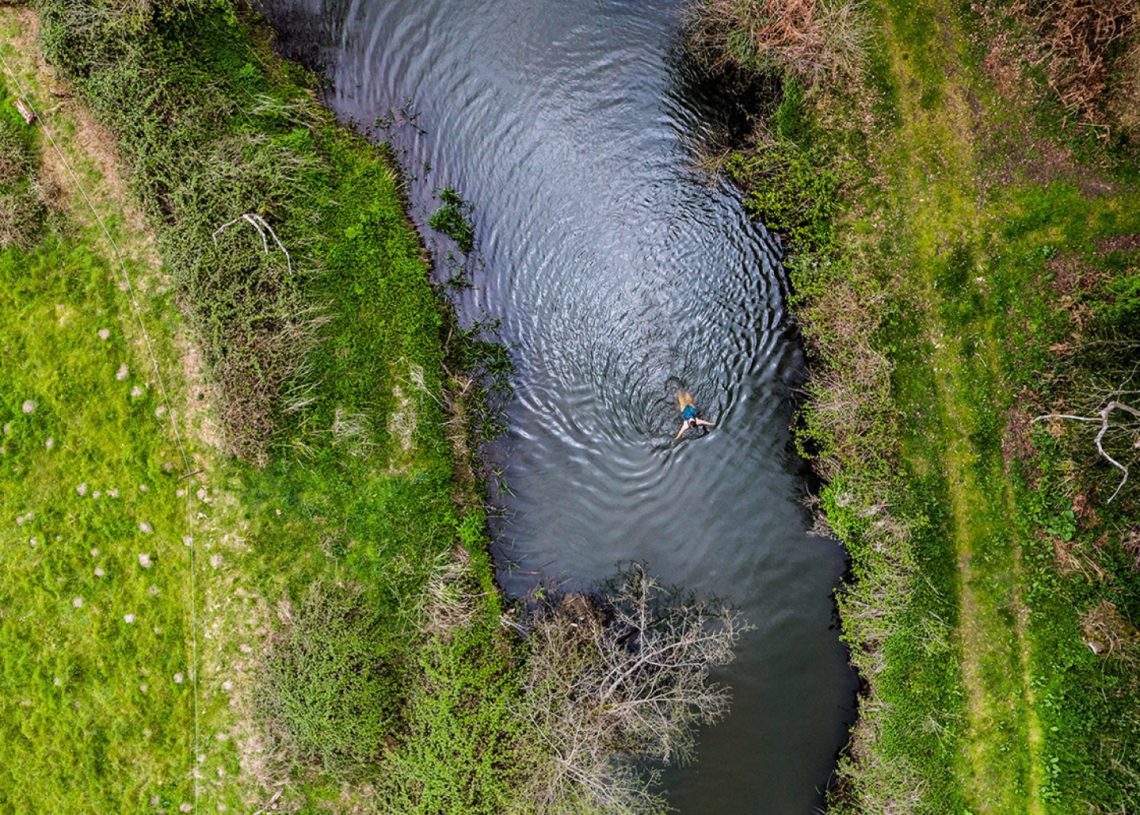
Go with the flow
Rivers have a beginning, middle and end – maybe that’s why so many of us love a river swim. Ella Foote shares her river story.
As a child I was lucky enough to be encouraged into outdoor water at an early age. There are pictures of me in the sea before I could walk but it was a long time until I developed a love of river swimming. Rivers were for rowboats, catching minnows and crayfish, or for dangling feet into on hot days. When I started swimming more purposefully and regularly outdoors, I didn’t understand why you would swim in a river. Growing up near the River Thames, we were told to stay away, keep out and that it was dirty. Fast forward to my 20s and I was forced to consider the Thames as a training spot for event swimming; it was then I slowly fell in love with river swimming.
One of the most common questions I get asked today is if rivers are clean enough for swimming. If you pay attention to the news, you might think they’re the last place you’d want to dip your toe but, much like any outdoor body of water, yes there are risks but you can mitigate them.
Despite always loving an outdoor swim, I haven’t always loved the wild parts of it and rivers seemed to have more wild things to encounter than a UK beach. You can largely avoid seaweed in the sea, but in a river there are weeds and pondlife in abundance.
I will never forget going on a river swim safari in Cambridge about ten years ago and being horrified that one of the swims included a belly float and wiggle through thick reeds in a shallow, narrow tributary of the river. My fellow water lovers used the reeds to pull themselves through but I couldn’t bear to feel the slimy, slithery plants against my skin. I shut my eyes when my face was in the water. Eventually the current spat us out into a wider part of the river and I felt instantly relieved. Thankfully weeds rarely bother me now. The more you encounter something the less it worries you and now I regularly coach others to overcome their fears.
My love for river swimming has developed like a slow-burn romance, unlike the spark of chemistry I instantly felt for the sea. I owe much of my river experience to the Thames, but being able to explore a range of rivers has helped me appreciate them and now I long for a river swim when I have spent too much time in lakes or the sea.
There is something truly special about a wide, deep river that enables you to really swim. The Thames between Oxford and Windsor offers lengthy swims between locks and bridges. The Thames Path makes it easy to access the water and if you’re willing to wake early or swim late, the Thames will reveal its secrets to you. Kingfishers woosh past in firework bursts of turquoise and orange. Geese fly in Vs, so low you can feel the air being pumped over you as you swim. You can use the bends and current to glide effortlessly or swim hard against the current to get your heart pumping. It is something I deeply miss now living away from the Thames.
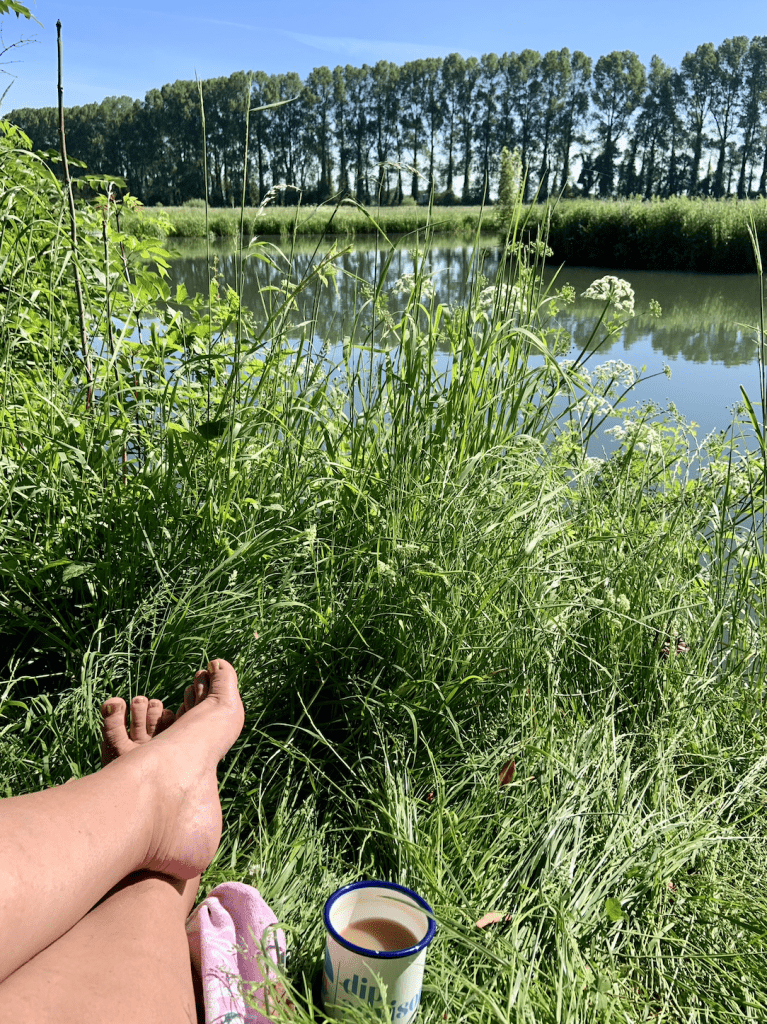
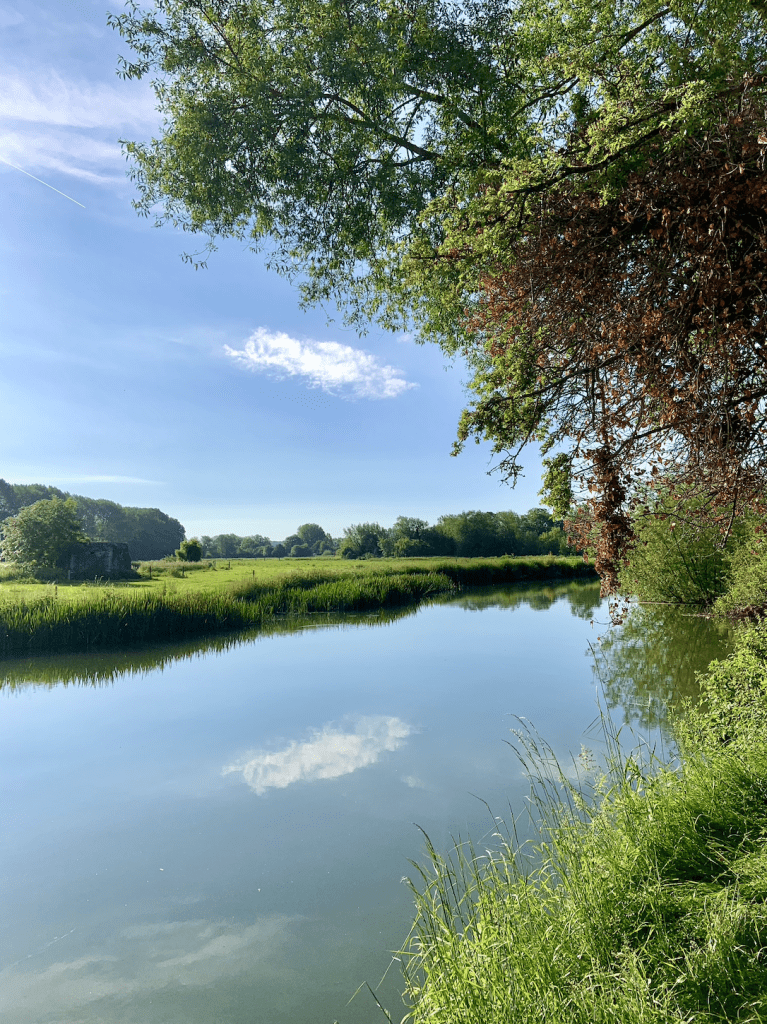
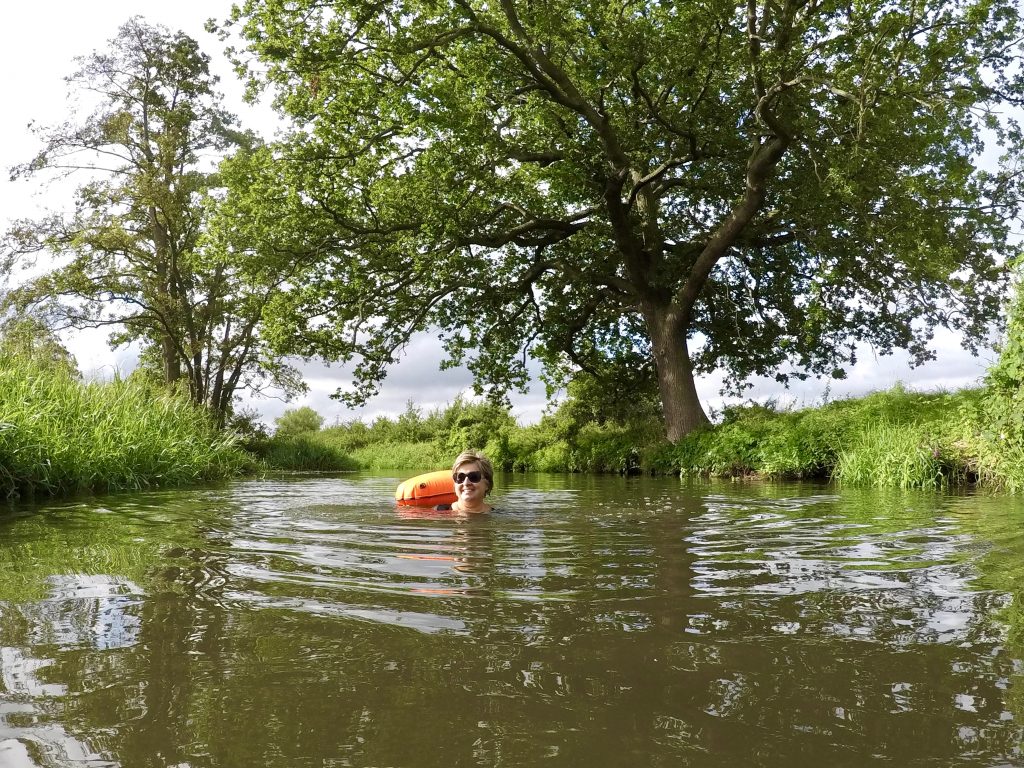
Swimming is the best way to get to know your local river. When I moved to Surrey, I had no idea how much I would miss the Thames or it’s younger sibling the Jubilee River, which were both a huge part of my swimming life. I pulled out an Ordnance Survey map and followed the blue wiggly lines in attempt to find similar. I didn’t have much luck, but I did find the River Wey. To begin with I was largely met with private land and little access to the water, but through persistence I was able to find parts of the Wey beside footpaths and public accessible land. I learnt that the Wey is largely adapted to allow for flat bottom boats and was once a huge part of trading in and out of London. I also found there was still the wiggly natural course of the river which slipped in and out of the main channel. One day I explored it with a friend. I wasn’t expecting much. I assumed it would be largely shallow or bog-like, instead I found a spring-fed rushing river with an abundance of wildlife.
I kept exploring, finding safe places to get in and out and secret spots to swim away from passing public. The river shallows to knee-depth at times, but mostly its deep and rushing. It’s cool due to springs feeding the river from the ground, but that means the water quality is reasonable too. The wildlife is wonderful and this year, for the first time, there is a pair of cormorants that feed and enjoy the water with me. I often see a kingfisher as well as masses of damselflies, dragonflies and water boatmen. I can swim in any season. In spring, the banks are sweet smelling from blossom while Himalayan balsam turns the edge of the river pink with flowers in summer. When autumn rolls in you can guzzle unscathed blackberries, and come winter the banks feel eerie with skeletal plant shapes.
My little part of the river has a lot of weeds, but that doesn’t bother me now. I know the river well in enough to know when it has changed. I know the fallen tree and how to avoid its claws. I know the muddy edges and the sandy bottom. I know it well enough to recognise when it isn’t right, which is rare, and I also know it enough to love it and look after it.
I still miss the Thames, it’s like a familiar old friend when I visit, but the Wey is my local pal. It has washed away my stresses, absorbed my tears and been my playground. There are still plenty of people who warn me away from river swimming, claiming it’s unsafe, dirty or not allowed. But I know this river; I know it well enough to know if it isn’t healthy and how to report it. I pick litter and take care not to trample around it. If I stop swimming in it, who will care for it then?
Main photo: Roger Taylor Photography








